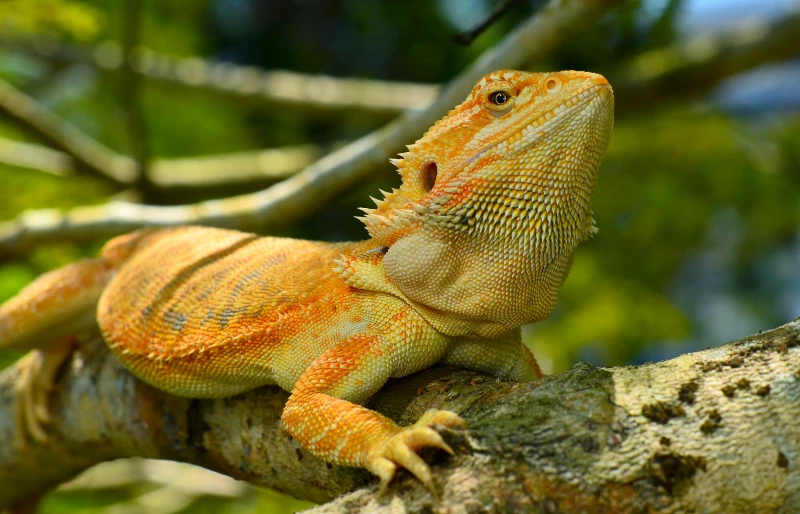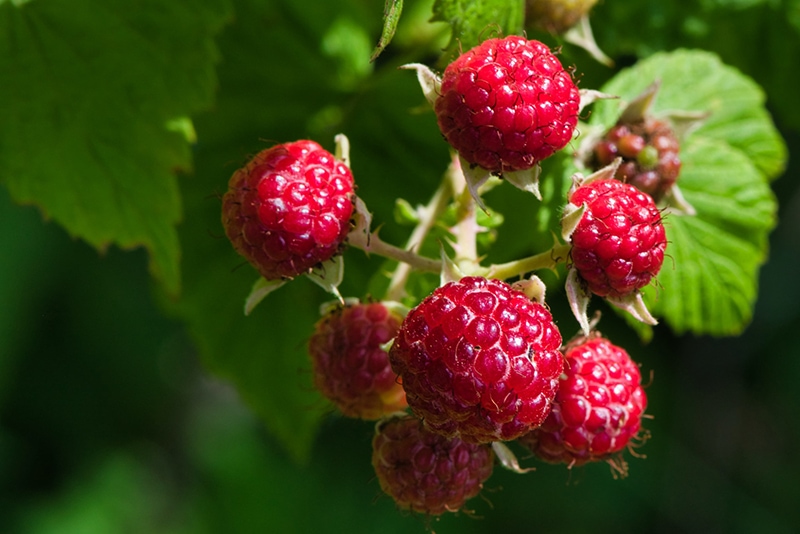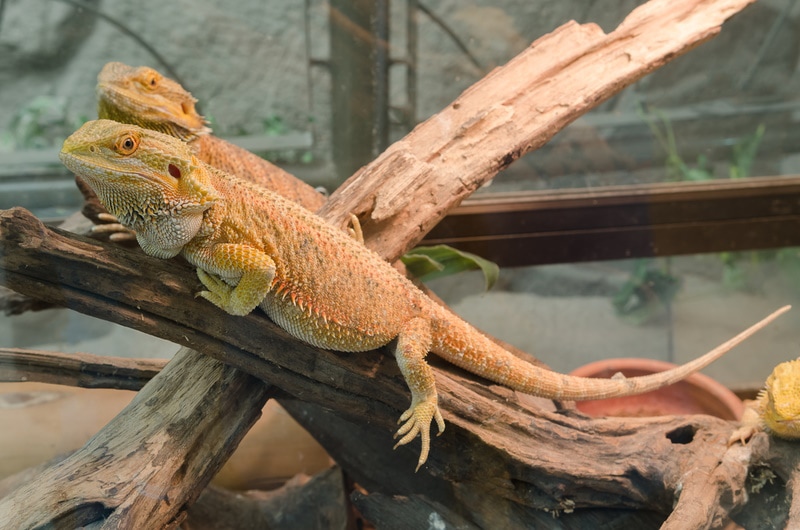Can Bearded Dragons Eat Shrimp? Vet Approved Facts & FAQ

Updated on
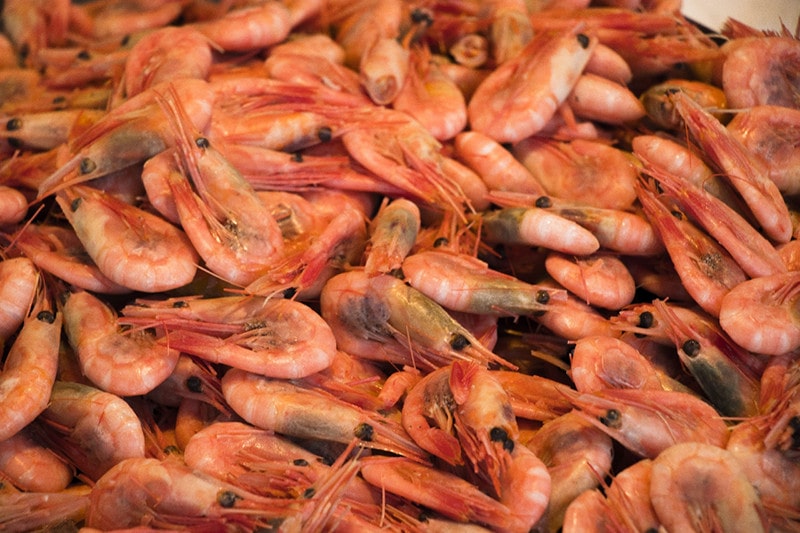
Click to Skip Ahead
The world of bearded dragons is fascinating, particularly when it comes to their dietary needs. One question often pops up among bearded dragon owners: “Can bearded dragons eat shrimp?” The answer is a bit tricky since there are benefits and downsides of including shrimp in a bearded dragon’s diet. This article will delve into bearded dragons’ dietary habits, shrimp’s nutritional value, and expert opinions on the subject.
Understanding a Bearded Dragon’s Diet
Bearded dragons are omnivores, meaning they eat a combination of plant and animal matter. In the wild, bearded dragons consume various insects, small rodents, fruits, and vegetables. A balanced diet is crucial for their health and wellbeing, and introducing new foods should always be done with caution.
Shrimp is a nutritious food that’s high in protein and contains several vitamins and minerals, including selenium, vitamin B12, and iron. These nutrients are essential for the overall health and growth of bearded dragons. However, the nutritional value alone doesn’t determine whether it’s safe for bearded dragons to eat shrimp.
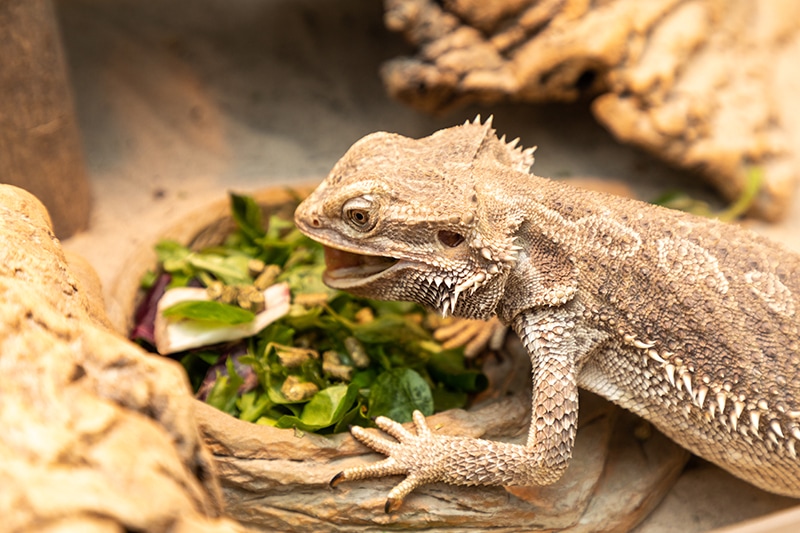
Risks of Feeding Shrimp to Bearded Dragons
While shrimp does offer some nutritional benefits, such as protein, vitamins, and calcium, there are potential health hazards that pet owners should be aware of.
Bacteria and Parasites
One significant risk is that shrimp can carry harmful bacteria, germs, or parasites, especially if served raw. This could lead to intestinal problems in bearded dragons. Therefore, it’s recommended that shrimp should be cooked before feeding to reduce the risk of bacterial or parasitic infections.
Digestive Issues
Another concern is that bearded dragons may have trouble digesting the hard exoskeleton of shrimp. This could potentially lead to impaction, a serious condition where the digestive tract gets blocked.
Potential for Overconsumption of Protein
Shrimp is high in protein. While protein is an essential part of a bearded dragon’s diet, consuming too much over time can lead to health issues such as diabetes, obesity, and liver disease. In severe cases, heart failure may occur.
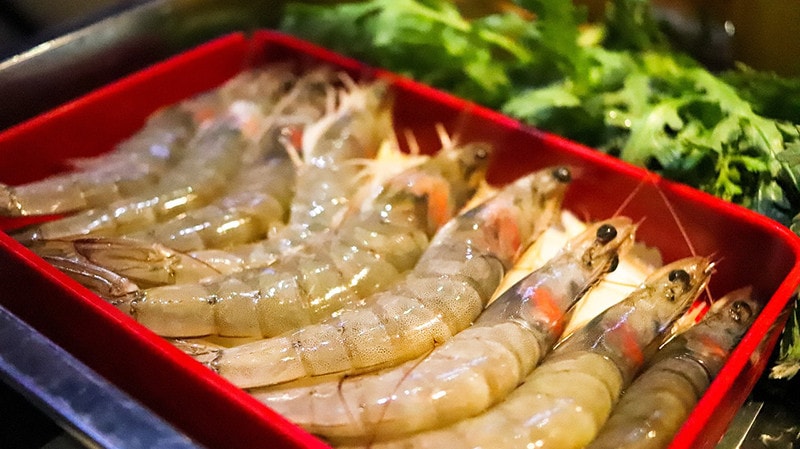
Toxicity Concerns
Certain types of shrimp, such as those found in tropical environments, may be toxic to bearded dragons. It can also present other risks such as mercury poisoning. Therefore, it’s crucial to ensure that any shrimp fed to bearded dragons is safe and suitable for their consumption.
Expert Opinions
The topic of feeding shrimp to bearded dragons often generates a diverse range of opinions among experts in reptile care. Veterinarians and reptile enthusiasts have debated the pros and cons of including shrimp in a bearded dragon’s diet. A significant number of these experts advise against feeding bearded dragons shrimp entirely. They cite various potential risks associated with feeding shrimp to bearded dragons, such as the possibility of harmful bacteria or parasites that could adversely affect the health of the pet. Additionally, they highlight concerns about digestive issues, as bearded dragons might struggle to break down the hard exoskeleton of shrimp, potentially leading to serious conditions like impaction.
However, there is another school of thought among some experts who believe that shrimp can be included in a bearded dragon’s diet, albeit in moderation. These proponents argue that shrimp, when properly prepared, can provide a source of protein and other nutrients beneficial to the health of the bearded dragon.
The key, they emphasize, is in the preparation. The shrimp must be cooked thoroughly to eliminate any harmful bacteria or parasites, and it should be served without any additives that could be harmful to the pet. They also underline the importance of portion control, cautioning that shrimp should only make up a small part of the bearded dragon’s diet to prevent overconsumption of protein and other potential health issues.
The Debate: Raw vs Cooked Shrimp
The debate between feeding bearded dragons raw versus cooked shrimp is ongoing. Some argue that raw shrimp could carry harmful bacteria or parasites, making cooked shrimp the safer option. Others believe that cooking shrimp may reduce its nutritional value. If you decide to feed your bearded dragon cooked shrimp, it should be prepared without any salt, spices, or other additives.
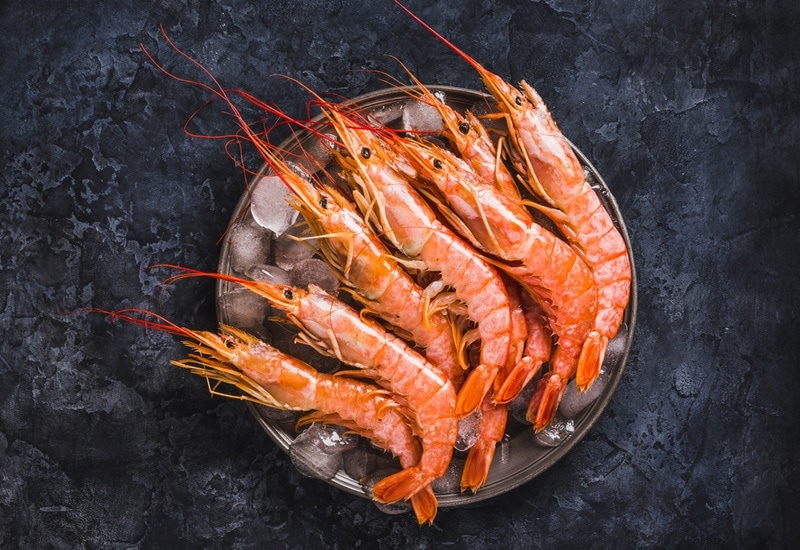
Safe Feeding Guidelines
If you choose to feed your bearded dragon shrimp, it’s important to do so safely. Shrimp should make up only a small part of your pet’s diet and should never be the primary source of food. Always observe your bearded dragon closely after introducing any new food to their diet and consult your vet if you notice any changes in their behavior or health.
Potential Alternatives to Shrimp
There are plenty of other food options that can provide similar nutritional benefits to shrimp. Crickets, mealworms, and vegetables like bell peppers and leafy greens are all excellent choices for bearded dragons and are typically easier for them to digest.
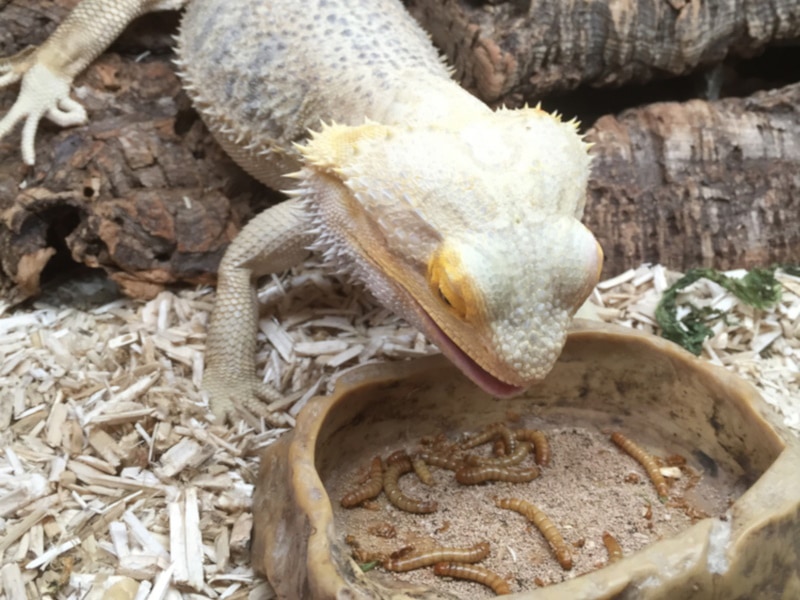
Signs Your Beardie Isn’t Feeling Well
Bearded dragons are generally robust and healthy pets. However, like any animal, they can experience health problems. Knowing the signs that your bearded dragon isn’t feeling well can help you catch potential issues early and seek veterinary care promptly.
- Loss of Appetite: A decrease in your bearded dragon’s appetite can be a sign of illness. While it’s normal for beardies to eat less during periods of brumation (a form of hibernation), a sustained lack of interest in food outside of these periods could indicate a problem.
- Changes in Behavior: Bearded dragons are known for their lively personalities. If your normally active pet becomes lethargic, or if you notice a sudden change in its behavior, this could be a sign of illness.
- Irregular Stool: The appearance of your bearded dragon’s stool can provide clues about its health. Loose, foul-smelling, or infrequent stools could indicate digestive issues.
- Physical Changes: Physical changes such as weight loss, swollen limbs, bumps, sores, or changes in the eyes (like puffiness or discoloration) can all signal potential health problems.
- Changes in Skin Color or Texture: While bearded dragons naturally shed their skin, changes in color or texture outside of the shedding period can be a cause for concern. Watch out for unusually dark coloration, patchy skin, or rough texture.
- Difficulty Breathing: If your bearded dragon is breathing heavily, making wheezing sounds, or keeping its mouth open frequently, it may be experiencing respiratory issues.
- Changes in Activity Level: A decrease in activity level or an increase in sleep can be signs that your bearded dragon isn’t feeling well.
Conclusion
Shrimp is yummy, and if you offer it to your beardie, there’s a good chance they’ll eat it, even if it may not be the best for them. While shrimp can provide certain nutritional benefits to bearded dragons, it’s important to weigh these against the potential risks. Always consult with a vet or a pet care expert before introducing new foods into your bearded dragon’s diet. Remember, a healthy diet is key to a happy and long-lived bearded dragon.
See Also:
- Can Bearded Dragons Eat Turkey? Vet-Approved Dietary Facts
- Can Bearded Dragons Eat Ladybugs? Vet-Approved Facts & FAQ
Featured Image Credit: Jumpstory


